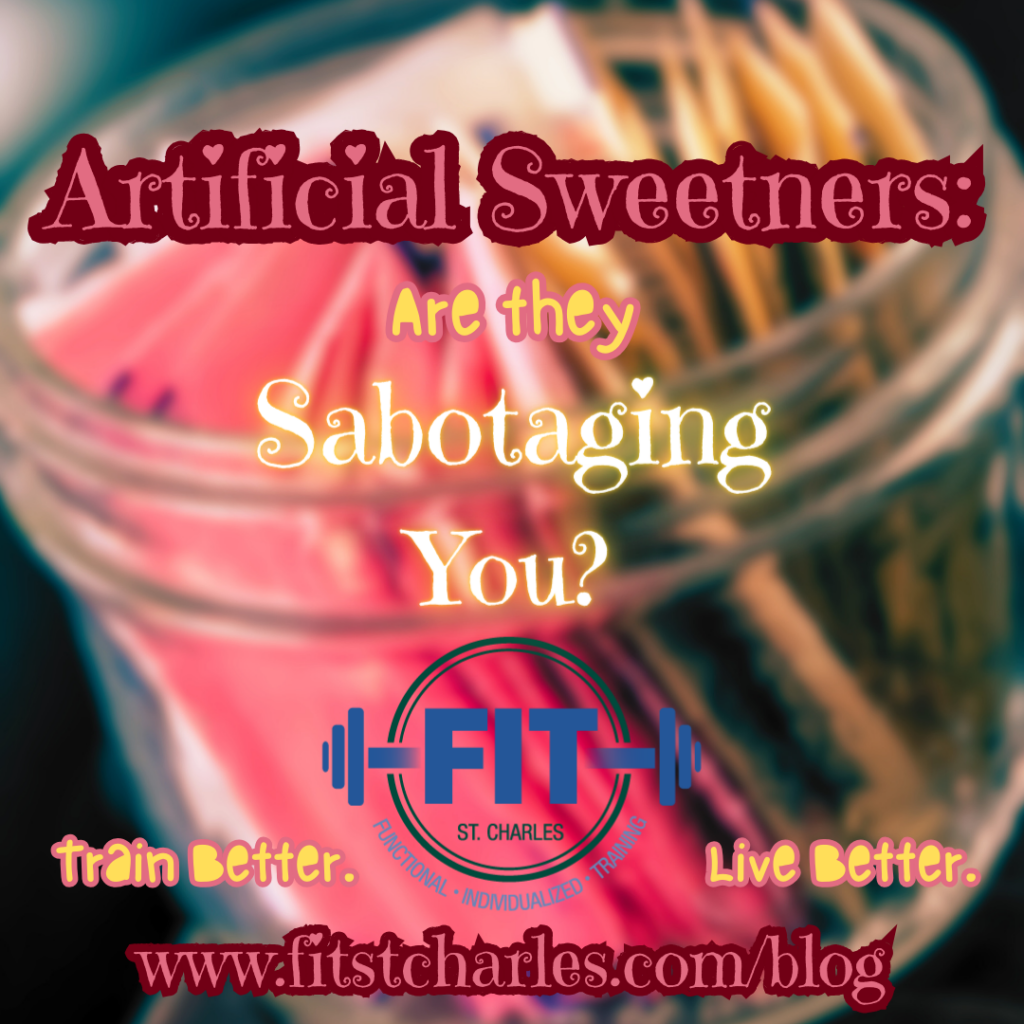
You’ve decided to begin a wellness journey. Part of that journey is probably cutting down on the amount of sugar you are consuming. If you don’t want to give up the sugary drinks or sweets, you turn to no-calorie sweeteners. After all, they have been around since the 60’s, companies tell you they are safe, and you take care of your sugar cravings without the actual sugar. Sounds like a win-win situation, right? Unfortunately, artificial sweeteners are not a magic fix, and might actually be sabotaging you!
Artificial sweeteners are not tied to weight loss or long term weight management. In a report published by the Canadian Medical Association Journal, researchers analyzed 37 studies on artificial sugars to see if they were proven successful as a tool for weight management. These studies followed over 400,000 people for 10 years. What they found was that those that consumed artificial sweeteners (in this case, by drinking diet beverages) had a higher risk for weight gain, obesity, diabetes, and heart disease. Although it is important to note that this could be correlation, not causation, there are two main factors that point to causation:
Artificial sweeteners mess with your body’s response to sugar. Interestingly, rather than promoting weight loss, studies have shown that the consumption of diet drinks was a marker for increasing weight gain. Consuming diet soda was found in one study (by the University of Texas Health Science Center, 2005) to be more likely to gain weight than those that consumed naturally sweetened soda. It is believed that this happens because your body thinks that it’s consumed sugar, so it reacts in the same way regardless of whether it was sugar or not- the sweet taste induces an insulin response, which causes blood sugar to be stored in tissues. However, unlike when you consume sugar, blood sugar does not increase when consuming artificial sweeteners, which causes hypoglycemia, which causes hunger (among other things), and therefore increased food intake. So even though you might not be getting the calories from sugar, you might find yourself with increased sugar cravings, as well as being hungrier overall, which can then lead to succumbing to cravings, and eating more than you normally would without even realizing it!
Artificial sweeteners mess with your gut biome. In recent years, we have been hearing a lot more about how our natural gut biomes affect our overall wellness. Not only does a healthy gut biome aid in digestion, but it’s been linked to overall physical and mental wellness as well. So when something messes with your gut biome, there can be a multitude of consequences, from decreased metabolism, to increased anxiety and depression (which can drive some people to eat to comfort themselves), to just overall not feeling well. Regardless of whether your goal is tied to weight, consuming artificial sweeteners might not be the best thing for you.
Clearly, artificial sweeteners don’t appear to help with weight management. On top of this, there are a number of studies that suggest that sugar substitutes may have a handful of other harmful effects. Overall, it’s just not a good idea to make these a regular part of your dietary consumption. Cutting down on sweets, whether it’s made with real sugar or not, is difficult… at least at first. Sugar is addicting, yes. But like any other addiction, the less you consume it, the less you crave it. Some other good news? Once you get used to a diet low in sugar and sugar substitutes, you’ll find that your taste buds actually become more sensitive to sweetness, meaning you’ll begin to notice foods that you didn’t think were sweet before satisfying when you do end up having a craving for something sweet!
